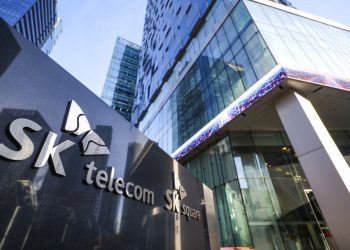South Korea’s third-largest telecom joins SK Telecom and KT in reporting possible breaches amid mounting pressure to strengthen cyber defenses.
LG Uplus, one of South Korea’s largest telecommunications operators, has confirmed that it recently reported a suspected data breach to the Korea Internet & Security Agency (KISA), the country’s national cybersecurity watchdog. The company said it is currently conducting an internal investigation to determine the cause and scale of the incident but has not disclosed when results will be released.
The confirmation makes LG Uplus the latest telecom company in South Korea to experience a cybersecurity issue. Its peers, SK Telecom and KT, have also reported breaches in the past six months, signaling a worrying trend that threatens the integrity of the nation’s digital infrastructure.
Government Investigations Underway
The Ministry of Science and ICT (MSIT) confirmed that investigations into the cybersecurity incidents involving KT and LG Uplus are ongoing. Authorities are seeking to determine whether these events are part of a coordinated effort, especially as analysts suspect that several attacks may share similar tactics or origins.
The probe began last month after reports suggested that the telecoms may have faced attacks resembling the one that hit SK Telecom earlier this year. Officials noted that the investigations would continue “until the root cause and data impact are fully clarified.”
Early Warnings and Missed Signals
Documents from KISA show that the agency first detected signs of unusual activity on LG Uplus’ systems as early as July and advised the company to submit a formal breach report. Initially, however, LG Uplus denied finding any evidence of unauthorized access.
Around the same period, KT Telecom confirmed that it had suffered from data exposure caused by unauthorized micro base stations connected to its network—suggesting a more sophisticated type of intrusion. KISA has since declined public comment, citing the sensitivity of the investigations.
Allegations of North Korean or Chinese Involvement
The controversy deepened after cybersecurity magazine Phrack reported in August that hackers possibly linked to China or North Korea had infiltrated LG Uplus’ internal systems. The report alleged that nearly 9,000 servers were compromised, exposing data belonging to about 42,000 customers and 167 employees.
While these claims remain unverified, they have raised concerns that South Korean telecom networks—key components of the country’s digital economy—may have become targets for state-backed cyber actors. If confirmed, the breach would represent one of the largest intrusions into Korea’s telecom sector to date.
“These repeated incidents indicate that South Korea’s telecom infrastructure is under sustained pressure from highly organized cyber adversaries,” said a Seoul-based cybersecurity researcher familiar with the matter. “The risks are no longer theoretical—they are operational.”
Delayed Reporting and Oversight Concerns
Despite initial denials, LG Uplus eventually filed its official breach report with KISA after discovering signs of potential intrusion. However, its delay in reporting has prompted criticism from lawmakers and regulators.
According to The Korea Times, internal oversight lapses are now under scrutiny. Lawmakers have questioned why LG Uplus reportedly reinstalled or modified key servers associated with its account management system shortly after receiving breach alerts—an action that could have erased crucial digital evidence.
“Telecom companies manage essential national infrastructure,” said a member of South Korea’s National Assembly Science Committee. “Transparency and swift cooperation with regulators are not optional—they are fundamental to maintaining public trust.”
Industry-Wide Pattern of Attacks
The LG Uplus breach follows similar incidents at SK Telecom and KT, marking the first time that all three major Korean carriers have faced major cyber incidents within a six-month period.
In SK Telecom’s case, the Qilin ransomware group claimed responsibility for stealing over 1 terabyte of data, including source code and internal project files. CEO Yoo Young-sang publicly apologized, pledging to implement “double and triple safety measures” and offering free SIM card replacements to affected customers.
KT, meanwhile, reported a cyberattack in September that led to unauthorized payments totaling 240 million won across 368 customers. Another hacker group, CoinbaseCartel, later claimed to have stolen confidential source code and threatened to leak it unless the company entered negotiations.
Systemic Weaknesses in Korea’s Cyber Framework
The series of telecom breaches has revealed structural issues in South Korea’s cybersecurity governance. Experts point to fragmented responsibilities across multiple agencies — including MSIT, KISA, and the National Intelligence Service (NIS) — which complicates crisis coordination.
The shortage of qualified cybersecurity professionals further weakens incident response capabilities. Despite being a high-tech economy, South Korea faces a growing skills gap in digital forensics and network defense. Analysts argue that without a centralized command structure and more robust talent pipelines, future attacks could become even harder to contain.
“South Korea’s cybersecurity system is still reactive rather than preventive,” said an analyst at the Korea Information Security Forum. “Until agencies consolidate efforts and the private sector invests more aggressively in threat intelligence, vulnerabilities will persist.”
What’s at Stake for Telecom Firms
For LG Uplus and its peers, the implications go beyond immediate financial or operational damage. Telecom operators store massive volumes of personal and corporate data, making them high-value targets for both criminals and state-backed hackers. Repeated incidents threaten to erode consumer confidence and strain relationships with enterprise clients and regulators.
Data breaches also risk disrupting essential communication services—an especially serious concern in a country where telecom infrastructure underpins everything from e-government systems to mobile banking and logistics. Experts warn that if such incidents continue, regulatory reforms and harsher penalties for non-compliance could follow.
Looking Ahead: The Road to Cyber Resilience
As investigations into LG Uplus and KT progress, South Korea faces a broader policy test: whether it can transition from ad hoc crisis management to long-term cyber resilience. Industry leaders are urging greater collaboration between telecoms, regulators, and security researchers to create early-warning networks and shared response frameworks.
Some have called for a national cybersecurity coordination center, similar to those in the United States or the EU, to streamline communication between the government and private sector during major incidents.
If handled effectively, the current challenges could spur overdue reforms and strengthen Korea’s digital defense posture. But if fragmented oversight and underinvestment persist, the country’s critical infrastructure will remain exposed to a growing array of cyber threats.







